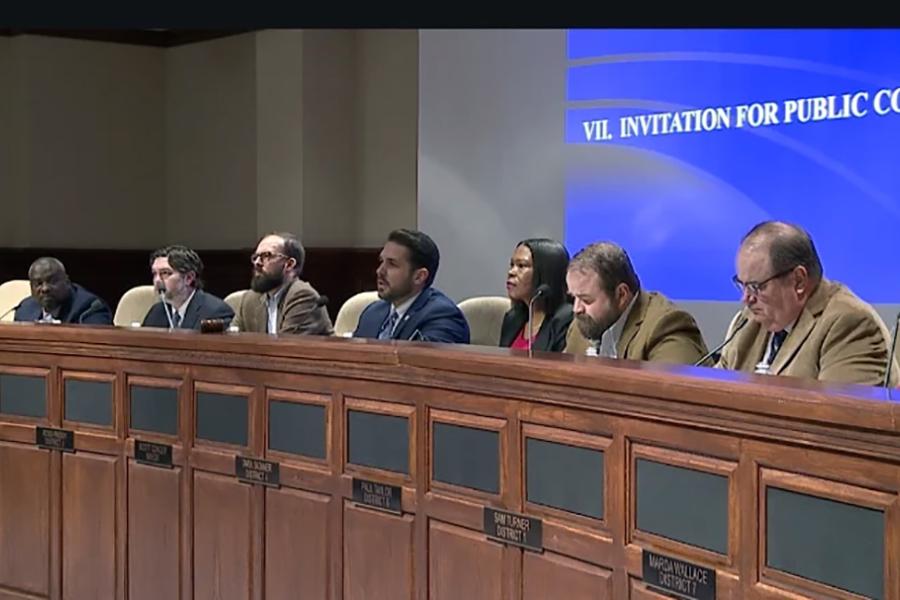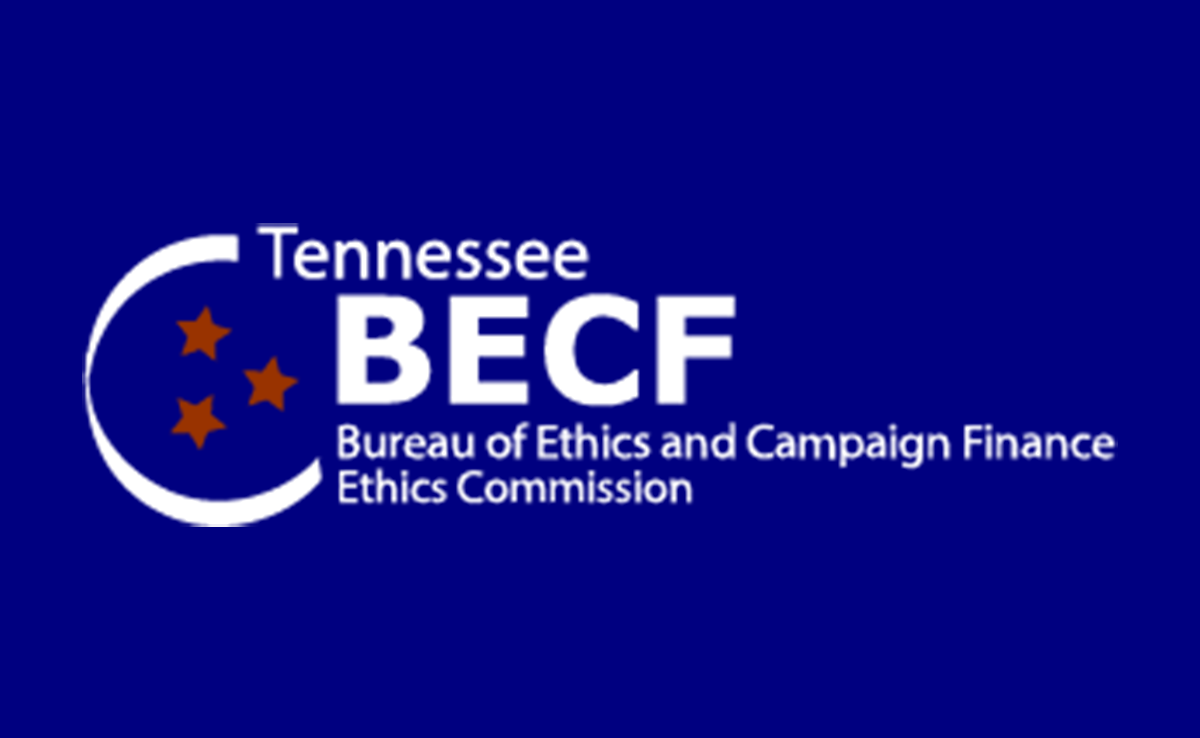Cities must submit updated ethics standards, contact info to BECF by end of year

By KATE COIL
TML Communications Specialist

A new law is requiring municipal and other government boards to submit to the state and keep updated both their code of ethics and contact information for their ethics officer by the end of the year.
A newly revised subsection of Tennessee Code §8-17-104 related to ethical standards for publicly elected officers and employees requires entities such as municipal, county, utility district, and school boards to have and keep up-to-date contact information regarding the board’s ethical codes and ethics officer with the Tennessee Bureau of Ethics and Campaign Finance by no later than Jan. 1, 2024.
The law also impacts any “board, commission, authority, corporation or other instrumentality that is created by two or more local government entities.” The revision comes from Senate Bill 158/House Bill 182 and was signed into law by Gov. Bill Lee on Feb. 27, 2023. A list of entities that are not in compliance with the law by Jan. 31, 2024, will be submitted to the lieutenant governor and speaker of the house.
Bill Young, executive director of the Tennessee Bureau of Ethics and Campaign Finance Ethics Commission (BECF), said his office promoted the passage of the bill as a way to help build up public confidence that government entities throughout the state are operating ethically and that citizens have recourse on the local level. The new law is a more updated version of one previously on the books.
“Under the past law that was in statute, each local governmental entity as defined by the statute has been required for years to submit their local code of ethics with us,” Young said. “The Legislature passed that as part of the Ethics Reform Act of 2003. They are required to not only file that code with us but to also file any updated amendments with us. We then put all that information on the website so everyone has access to it. As to how updated our website is, we don’t know. We suspect with certain entities it may be a little outdated.”
Young said BECF supported the revision of the law because they are increasingly being contacted with local concerns that are not within the bureau’s purview.
“We don’t handle a local advocate complaint,” he said. “We refer them back to the local jurisdiction for their ethics officer or whoever is responsible to do an investigation and figure out whether or not there is a problem with a local code of ethics. We only do state ethics here. The problem we run into is that we do not have a list of the folks at those entities who handle ethics complaints. We always assume it’s probably the general counsel, but it's not always.”
He hopes the new legislation will not only notify the entities named in statue of their responsibility but to also provide better resources for the public. While there is a submission deadline, Young said there is no penalty for entities not in compliance save their names being submitted to legislative leadership. The goal, he said, is to get up-to-date information and all entities into compliance.

In addition to an updated code of ethics, BECF is also seeking updated contact information for the ethics officer appointed by the board. Young said usually this is legal counsel for the board or commission. The name, business address, phone number, and email address of the ethics officer must also be submitted to the BECF. If a new ethics officer is appointed, this information must be updated with the BECF within 30 days.
“Generally, if someone is accused of violating the ethics code, that officer is the one who handles the complaint and investigates if there has been a violation,” Young said. “If we get a complaint, we usually refer it to the local attorney. We get more complaints than you would think. We have a very limited jurisdiction on ethics to a certain set of state officials. We even have a limited jurisdiction over the General Assembly and Executive Branch. We have no jurisdiction over the locals, which is intentional. You would want that handled by the locals and not us.”
Overall, Young said having this information will help build trust between the public and government entities in a time when that trust seems to be eroding.
“Particularly in smaller places, they have no idea that they are responsible for the code of ethics,” he said. “It gets to be a big issue when someone makes a complaint under it. We want that handled on the local level. We are all held to ethical standards. We all have ethical codes we follow to ensure we are doing the job we are required to do, and that there is nothing unethical going on. It also gives our citizens the opportunity to make those complaints. The Tennessee Supreme Court has a very sophisticated review system. The governor does too. The House and Senate have their own ethics officers. The message to our citizens is that we are all doing appropriately the job we are required to do, and if someone is doing something inappropriately there is a mechanism for that to hit the light of day and be dealt with.”
Young said this also allows local entities to better move any complaints through the local level, so they don’t reach the Comptroller’s Office or state attention.
“We want everyone in compliance; we don’t want this to be a ‘gotcha,’” he said. “We want to show the citizens of this state that we take ethics seriously. We take people doing the right things seriously. When people are in compliance, it shows people we are serious about what we do and hopefully have confidence in our government. This is an attempt to make sure we are all in compliance with our ethical and legal responsibility, providing full transparency to our citizens, and that we take our ethical obligations seriously. We want people to understand if they have a complaint there is somewhere they can go to have their complaint heard.”
BCEF will be sending out a mailer with information on the new requirements and Any questions about the deadlines, ethics codes, or ethics officers can contact Lauren Topping, general counsel with the BCEF, at lauren.topping@tn.gov or (615)-741-7959.
